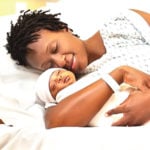The World Health Organisation (WHO) has declared Bayelsa State free of maternal and neonatal tetanus free after conducting a survey in the state, involving women of child bearing age.
A medical officer of WHO from Geneva, Switzerland, Ms. Hilde Sleiks, disclosed this during a briefing, saying that no new case of maternal and neonatal tetanus was found after the survey.
Ms. Sleiks explained that the survey covered over 7,900 households and looked into the survival rates of children who were born and found out the cause of child deaths.
She also advised against the use of traditional substances to treat wounds during childbirth, such as certain herbs, toothpaste, ash, dung, among others which expose mothers and children to tetanus infection and sepsis.
She called on women to take advantage of antenatal services in the state and ensure proper hygiene is maintained during childbirth.
In his remarks, Commissioner for Health, Dr. Pabara Newton Igwele, expressed joy over the development, congratulating the state’s team for the feat recorded.
He said a lot of work went into improving primary healthcare in the state through various projects and programmes and assured that the state government would do more.
Also speaking, the state Director of Public Health, Dr. Jones Stow, said he was delighted at the report which shows the ministry’s hardwork has paid off.
He said contributing factors to the elimination of maternal and neonatal tetanus in the state include the domestication of the Task Shifting and Task Sharing Policy.
Stow further said that the implementation of the Community Health Influencers Promoters and Services (CHIPS) programme, Integrated Management of Childhood Diseases (IMCD) programme, the Bayelsa Health Insurance Scheme (BHIS), which is one of the best in the country, also contributed.
Another medical officer of WHO in Geneva, Dr. Nasir Yusuf, said women of child bearing age need three doses of the tetanus vaccine for long term protection and five doses for lifetime protection.
He harped on the need to promote clean delivery and called on the state government to constitute a surveillance team that can spot neonatal tetanus early, especially in the rural areas.






